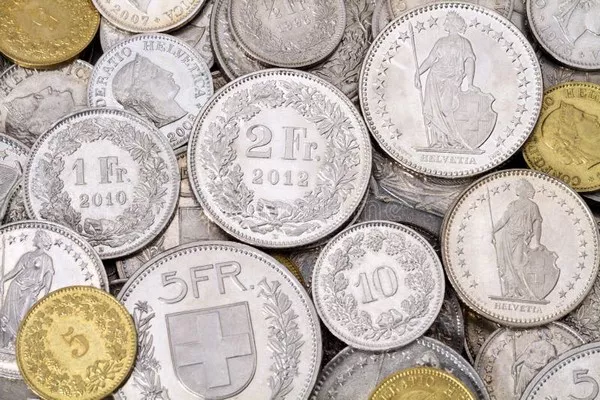Switzerland is a country that is well-known for its banking system, its chocolate, and its cheese. But perhaps one of the most notable things about Switzerland is its currency – the Swiss franc. The Swiss franc is a highly valued currency, and it is often used as a safe haven currency in times of economic uncertainty. In this article, we will take a closer look at what the Swiss currency is, why it is so highly valued, and what factors influence its value.
What is the Swiss Currency?
The official currency of Switzerland is the Swiss franc (CHF). It has been the country’s currency since 1850 when the Federal Coinage Act was passed. The Swiss franc is divided into 100 centimes, with coins available in denominations of 5, 10, 20, and 50 centimes, as well as 1, 2, and 5 francs. Banknotes are available in denominations of 10, 20, 50, 100, 200, and 1,000 francs.
Why is the Swiss Franc So Highly Valued?
The Swiss franc is considered to be one of the world’s safest currencies. It is often used as a safe haven currency in times of economic uncertainty because of Switzerland’s political stability, strong economy, and sound monetary policy. When investors are worried about the global economy, they tend to flock to the Swiss franc because they believe it will hold its value better than other currencies.
Another reason why the Swiss franc is highly valued is that Switzerland has a long-standing reputation as a banking haven. This means that many wealthy individuals and organizations choose to keep their money in Swiss banks, which in turn supports the demand for Swiss francs.
Factors That Influence the Value of the Swiss Franc
Like any other currency, the value of the Swiss franc is influenced by a variety of factors. Some of the most important factors include:
1. The Strength of the Swiss Economy: The strength of the Swiss economy is a major factor that influences the value of the Swiss franc. When Switzerland’s economy is doing well, investors are more likely to invest in Swiss companies and buy Swiss products, which increases demand for the Swiss franc and drives up its value.
2. Interest Rates: Interest rates set by the Swiss National Bank (SNB) also have a significant impact on the value of the Swiss franc. Higher interest rates tend to make a currency more attractive to investors because they can earn higher returns on their investments. As a result, when the SNB raises interest rates, the value of the Swiss franc tends to go up.
3. Global Economic Conditions: Global economic conditions can also have an impact on the value of the Swiss franc. For example, if there is a global economic downturn or crisis, investors may flock to safe haven currencies like the Swiss franc, which can drive up its value.
4. Political Stability: Switzerland has a long-standing reputation for political stability, and this can also influence the value of the Swiss franc. When investors are worried about political instability in other countries, they may choose to invest in Switzerland, which can increase demand for the Swiss franc and drive up its value.
5. Central Bank Intervention: Finally, central bank intervention can also influence the value of the Swiss franc. If the SNB believes that the value of the Swiss franc is too high, it may intervene in the foreign exchange market by buying other currencies and selling Swiss francs. This can help to weaken the Swiss franc and make it more competitive with other currencies.
Conclusion
In conclusion, the Swiss franc is a highly valued currency that is often used as a safe haven currency in times of economic uncertainty. Its value is influenced by a variety of factors, including the strength of the Swiss economy, interest rates, global economic conditions, political stability, and central bank intervention. Despite its high value, the Swiss franc remains an important currency in global finance and trade, and its stability and sound monetary policy make it an attractive currency for investors around the world.


